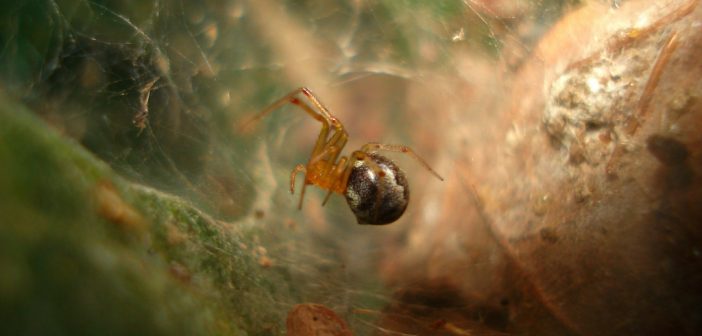(Photo credit: Joe Lapp, used under CC BY-NC 2.0)
(Chapel Hill, N.C.—July 21, 2016) – Like people, animals have personalities. And their personalities differ, sometimes hugely, on traits like shyness and aggressiveness. Among the big questions are where those differences come from, why they exist, and how they are maintained. Now researchers from the University of North Carolina at Chapel Hill have uncovered an unexpected benefit of these personalities: to protect societies from extreme temperature changes.
The work, led in part by Spencer Ingley, a postdoctoral fellow at UNC College of Arts and Sciences, is particularly relevant at a time when the planet’s climate is projected to increase on the order of 3 to 12 degrees Fahrenheit by 2100. It could also have far reaching implications on how to restore animals in their different habitats in an increasingly changing world.
“We live in a time of global change,” said Ingley. “Scientists are seeing that these changes can have a huge impact on individual organisms and groups of organisms. But people have rarely looked at personalities and how the personalities of groups can alter their response to these changes, particularly in different temperature environments.”
This work focused on the tangle web spider, known to scientists as Anelosimus studiosus, which lives in North Carolina and across North and South America. In this species, individual spiders have either one of two personalities: docile or highly aggressive. Together, they not only share the same living space but also share in the duties of brood care and capturing of prey.
Ingley and his team, which included researchers from Israel, Australia, and the U.S., looked at the effect of temperature – 75 to 93 degrees Fahrenheit – on the spiders’ ability to survive and reproduce as an individual and within a colony. They found that aggressive spiders were less likely to survive and reproduce at higher temperatures. But the opposite was true for docile spiders: as the temperature heated up, the better they reproduced and survived. The researchers saw the same pattern when the colonies were made up of all aggressive individuals or all docile ones.
But when a colony had different personalities – a mix of aggressive and docile spiders – the aggressive spiders didn’t die in hot temperatures and docile ones didn’t die in cooler ones.
In other words, not a single aggressive spider was able to reproduce at 93 degrees Fahrenheit and most of them died at that temperature. But when Ingley and his team added docile spiders to the mix, the aggressive spiders thrived in that diverse community at that temperature.
“Some aspect about living in a diverse society shields these aggressive spiders from selective pressures that would otherwise kill them,” said Ingley. “Without these diverse personalities, these spider societies would be more susceptible to extreme fluctuations in temperature – and it is interesting to think if our own society could benefit from diversity in a similar way.”
__
The University of North Carolina at Chapel Hill, the nation’s first public university, is a global higher education leader known for innovative teaching, research and public service. A member of the prestigious Association of American Universities, Carolina regularly ranks as the best value for academic quality in U.S. public higher education. Now in its third century, the University offers 77 bachelor’s, 113 master’s, 68 doctorate and seven professional degree programs through 14 schools and the College of Arts and Sciences. Every day, faculty – including two Nobel laureates – staff and students shape their teaching, research and public service to meet North Carolina’s most pressing needs in every region and all 100 counties. Carolina’s more than 308,000 alumni live in all 50 states and 150 countries. More than 167,000 live in North Carolina.





